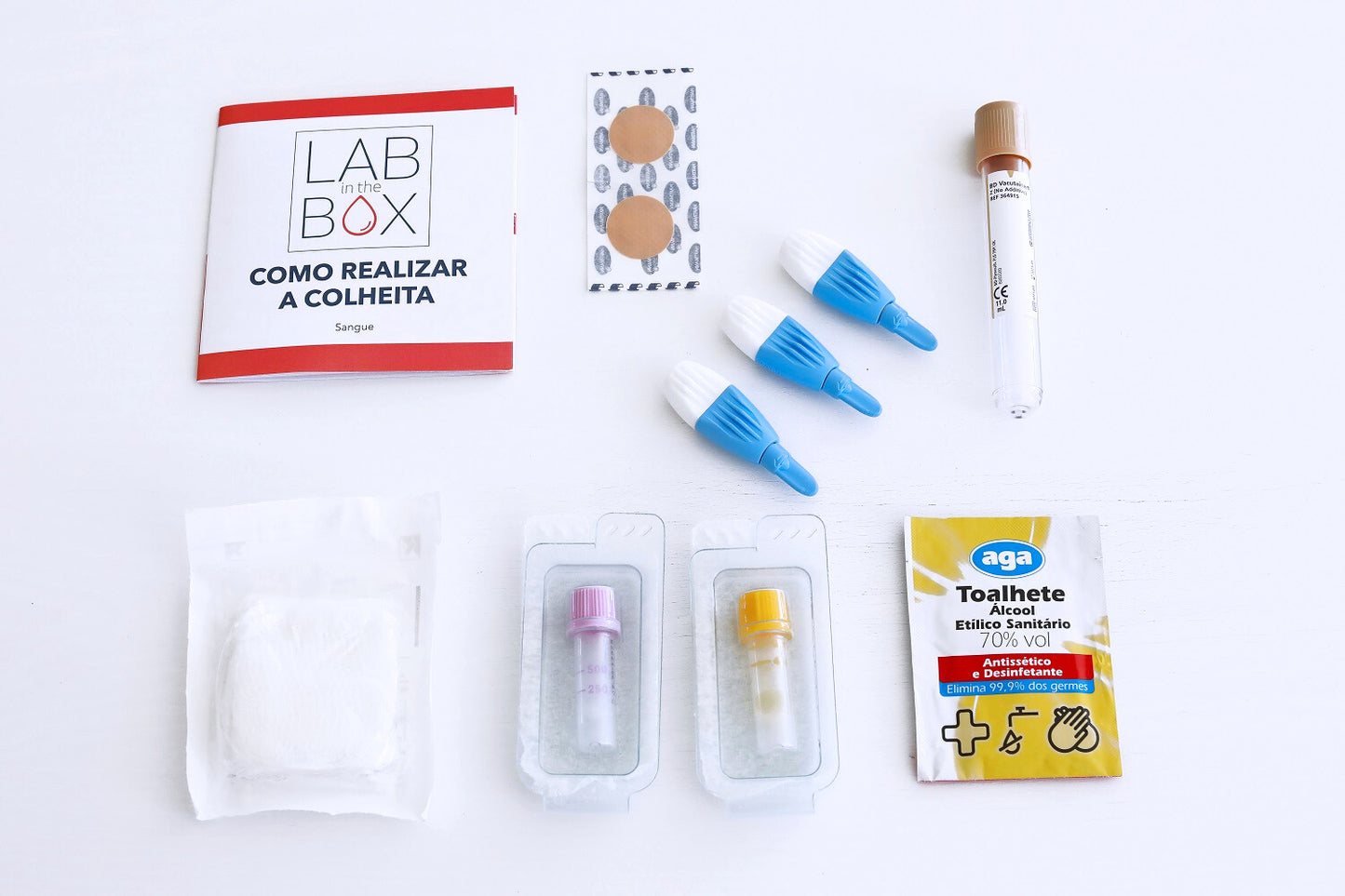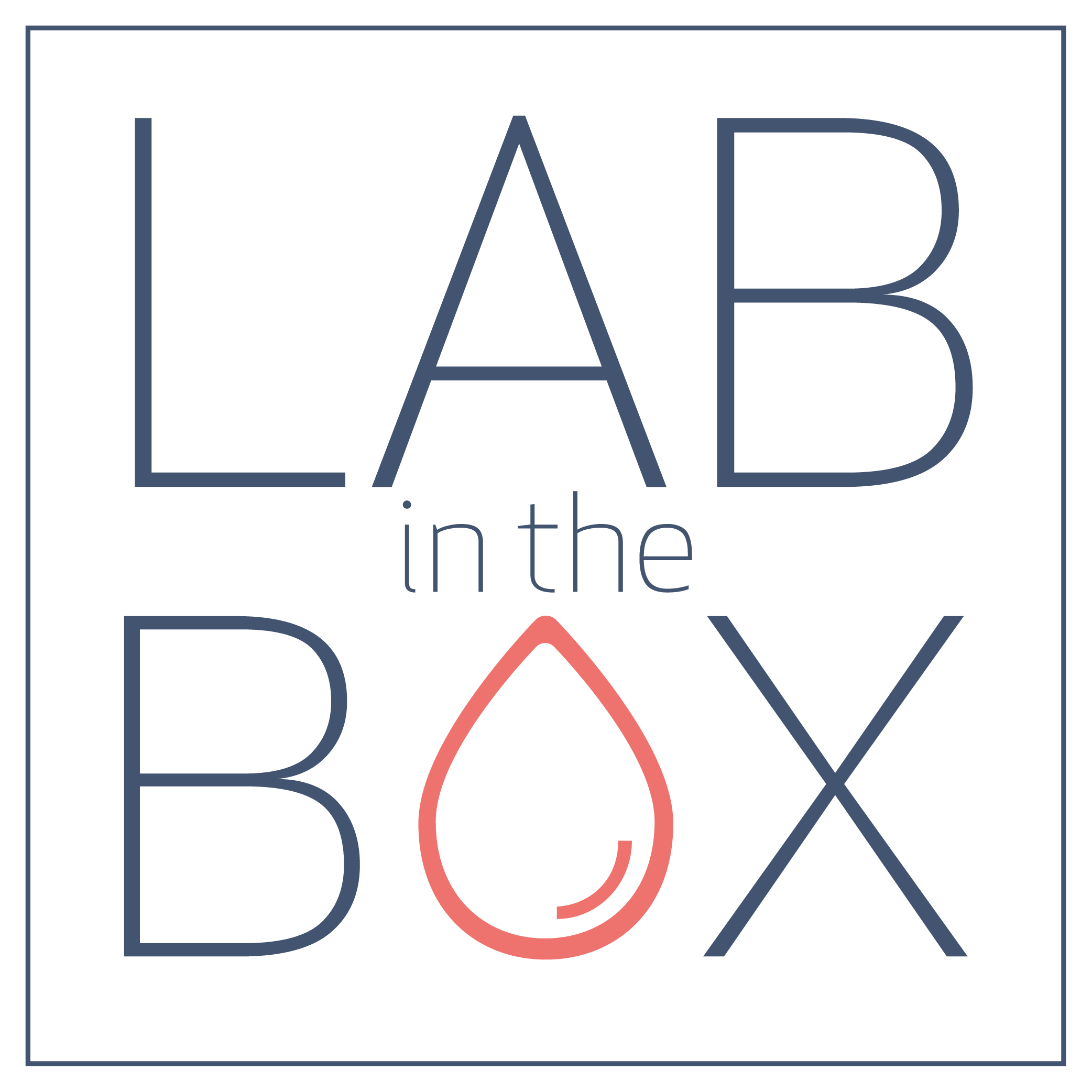Perimenopause
Perimenopause
Perimenopause is the transitional phase leading up to menopause, during which the body begins to transition into the end of the reproductive years. This phase can last for several years and is characterized by significant hormonal fluctuations that result in a variety of physical and emotional symptoms. During perimenopause, the body's production of estradiol, FSH (follicle-stimulating hormone) and LH (luteinizing hormone) undergoes significant changes, affecting the menstrual cycle and other aspects of health.
Unable to load pickup availability
This test kit allows:
This test kit allows:
🩸 Easy blood collection
🏠 A capillary blood collection at home
🧪 Reliable Laboratory Results
🕐 Results by email in 24h - 48h
Tested parameters
Tested parameters
Estradiol, Luteinizing Hormone (LH), Follicle Stimulating Hormone (FSH)
What is included in the test:
What is included in the test:
☑️ The kit includes all the material necessary for sample collection and shipping;
☑️ Cost of sending the kit back to the laboratory;
☑️ Detailed instructions and training videos;
☑️ Digital results;
☑️ Specialized support if necessary.
When to test
When to test
- Collection must be carried out before 11:30 am on a Monday, Tuesday, Wednesday or Thursday and returned the same day by post to a delivery point or by scheduling a collection before 12 pm.
Amount of blood to be collected
Amount of blood to be collected
You must use the yellow-capped collection tube and collect a minimum amount of blood of 400 µL.
Fast
Fast
Fasting is not necessary to perform this test.


Who should take the test?
This test is intended for women who suspect that menopause is beginning and want to get confirmation. This change can begin from the age of 45, but the true signs are observed around the age of 55.
Related symptoms include:
- Fatigue
- Sleep problems
- Weight gain
- Memory problems
- Difficulty concentrating
- Swelling
- Heat waves
- Vaginal dryness
- Low libido
Tested Parameters
Estradiol
Estradiol, produced in the ovaries, is the main form of estrogen in the human body. This hormone is responsible for ovulation and is essential for reproductive health and pregnancy. After menopause, estradiol levels decrease significantly. Estradiol also plays an important role in bone development, secondary sexual characteristics, and optimal functioning of the brain and reproductive system.
Luteinizing hormone (LH)
Luteinizing hormone (LH) is responsible for the stimulation and maturation of ovarian follicles. During the menstrual cycle, when an egg matures, the follicle ruptures and releases the egg from the ovary for possible fertilization.
Follicle Stimulating Hormone (FSH)
Follicle-stimulating hormone (FSH) plays an essential role in the growth and maturation of ovarian follicles, as well as in ovulation and the menstrual cycle. Basal FSH levels typically increase with age due to decreasing ovarian reserve, and greater amounts of FSH are required over time to stimulate ovarian function.






